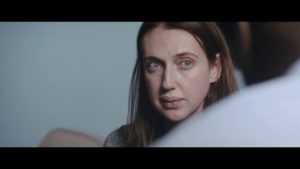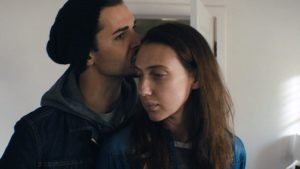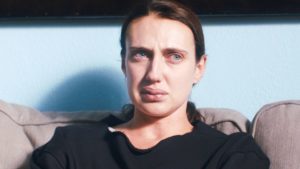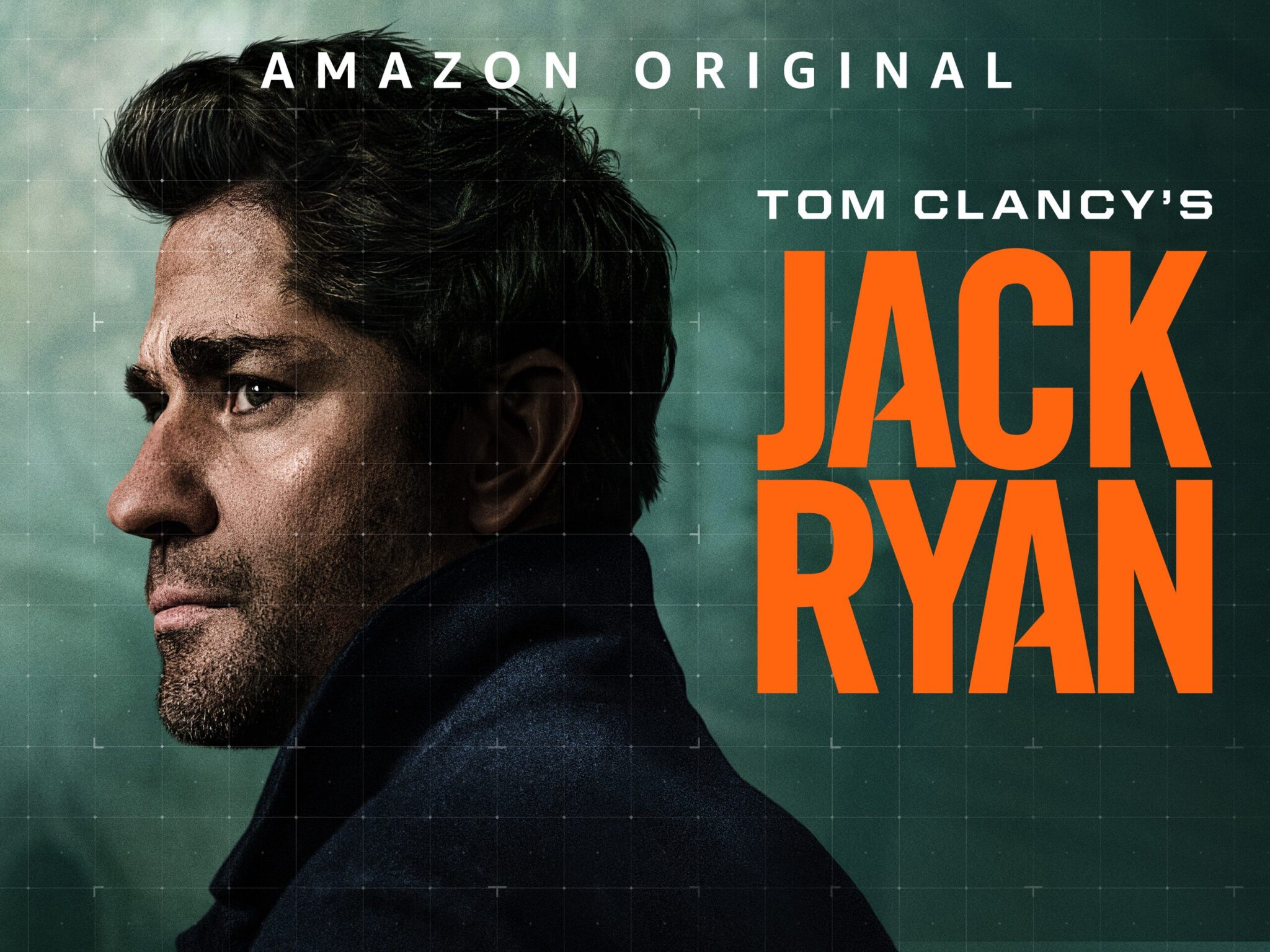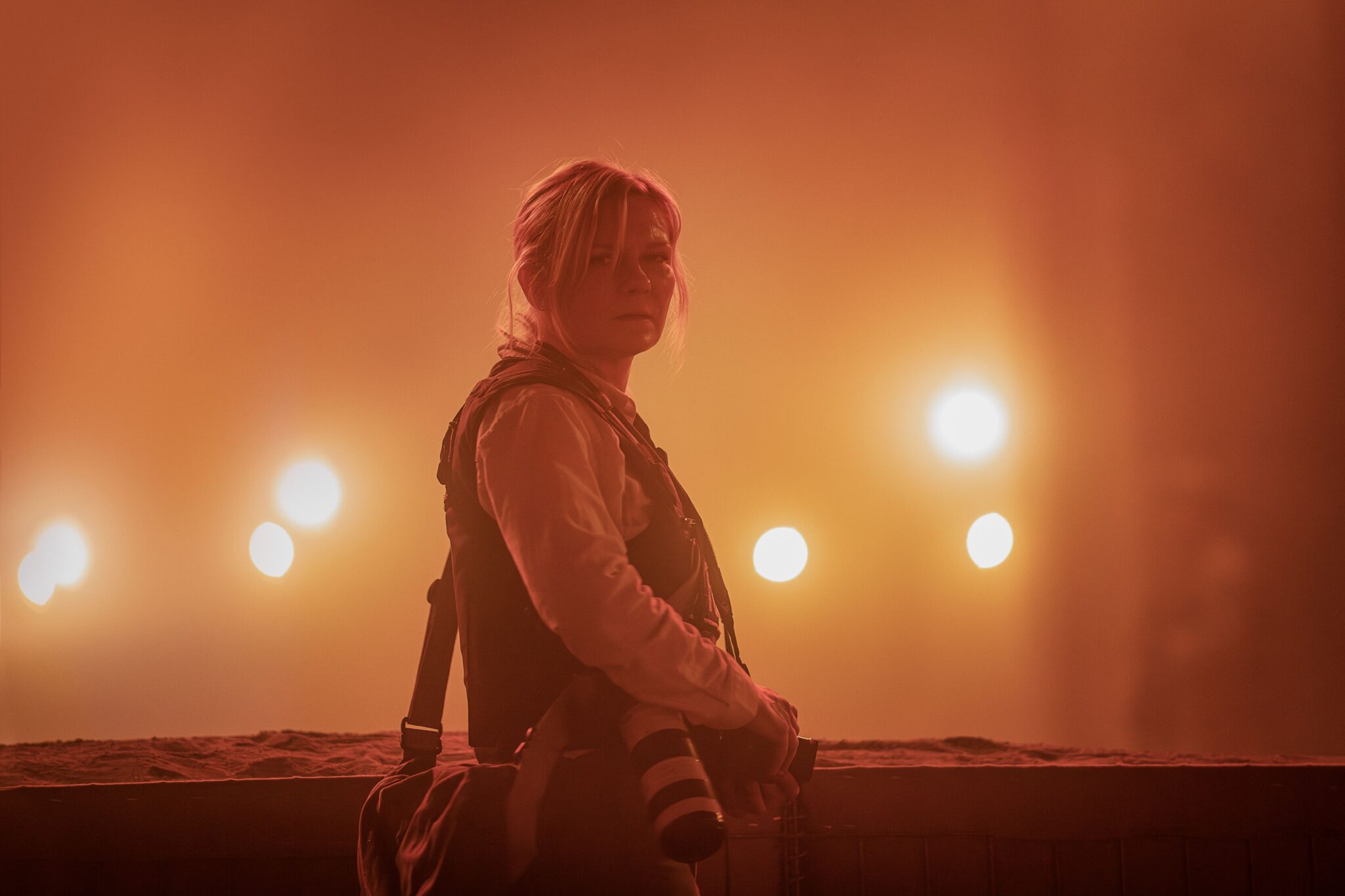?Whatever it is, we all have issues.? We?re all gonna be okay.?
In Elizabeth Blue, actress Anna Schafer takes on the incredibly intense role of a young woman (Anna Schafer) struggling with tremendous mental health issues.? Living with her devoted fianc?, Grant (Ryan Vincent), she is plagued by hallucinations and voices in her head to the extent of emotional paralysis.? Finally, with the help of her new therapist, Dr. Bowman (Adewale Akkinuoye-Agbaje), she begins to gradually face her inner turmoil in an attempt to find freedom from her deepest hurts and fears.
Despite the challenges of a role such as this, Schafer claims that it was the complexity of the character that drew her to the project in the first place.
?I?m really attracted to complex, complicated characters that have major issues, as I think we all do.? But I?m also really attracted to stories that are based on true stories.? Every time I read a script, I either connect to the character or I don?t.? So, it just depends, really.?
?[When] I read the script [for Elizabeth Blue], I fell in love with the story, first and foremost.? It really just broke my heart in a way.? I don?t know what it was exactly but it was this concept of not knowing what?s reality and what is not.? And I thought of that as I kind of applied it to my own life and it scared me.? I think that?s what drew me in initially because I started thinking about my daughter, my husband, or my life, and not knowing what was real or not??
Of course, what makes the script for Elizabeth so unique is that it is based on the real-life experiences of the film?s writer/director, Vincent Sabella.
?The story is very much based on [Vincent?s] story,? she explains.? ?Every hallucination is one that he has had and every person is someone that he has seen since he was fourteen… It?s based on this period of time in 2010 when all of his medications sort of plateaued and started failing him.? All of a sudden, he went from completely functioning to every day being a rollercoaster and his hallucinations were getting out of control.?
Portraying the life?s journey of another person onscreen is a daunting task for anyone, let alone your director. While feeling the weight of her obligation to give an accurate portrayal of his journey, Schafer says that Sabella and his husband worked very hard to help her understand his experiences by opening their hearts to her.
?At first, it was very challenging,? she initiates. ?I mean, the role is very intense.? Also, you feel a sense of responsibility to portray schizophrenia the right way and do right by everyone who lives with it. So, we felt that sort of pressure.? Vincent was amazing, too.? I didn?t live with him but it felt like I lived with him.? I spent so much time with him and got to see some of his episodes right in front of me. I?d never seen schizophrenia before and it was really intense, emotional, and scary but it really kind of made me see it so I could use it for Elizabeth and see that that?s what it looks like.?
?I also got to spend time with Joe Davis, the producer, who is also Vince?s husband, so I got to see the other side of it. Vincent could tell me what it feels like and looks like from his point of view. Then, Joe could tell me what it really looks like because a lot of times, when Vince has episodes, he remembers what he sees but he doesn?t remember what it looks like? I felt very honored that they sort of let me into their lives and trusted me enough to open up and share with me what are really hard times for them.?
In her battle with schizophrenia, Elizabeth?s character is in constant turmoil. Suffering from ongoing hallucinations ranging from her ?pet? raccoon to a terrifying encounter with train sounds, Elizabeth struggles with knowing the difference between reality and illusion.? Nevertheless, Schafer believes that, despite her anxiety, Elizabeth has found a sense of safety amongst some of her delusions.
?I think, for example, [in the case of] the raccoon, for her was a lovely hallucination,? Schafer argues. ?It was like a friend. It made her feel safe. It wasn?t a scary place to be when she saw the raccoon, so there?s a sense of security and safety with some of these hallucinations. Then, there are others, like the train, that are completely terrifying. So, I think there?s a really interesting balance.? I think she feels that, overall, it?s quite scary because she doesn?t always know what real vs. what?s not. But I do think that some of the hallucinations bring a sense of safety to them so I think that was really interesting.
As one might expect, portraying such a debilitating illness put quite a strain on Schafer emotionally. As a result, she had to find ways to disconnect from her character, lest she put any more strain on her family during filming.
?I think it was definitely very hard place to live in and I didn?t leave Elizabeth behind when I went home,? she reflects. ?The entire time we were shooting, I brought Elizabeth home with me.? To the point where my husband had to pull me aside and say, ?you know, you have a two-year-old.? I get that this is your job? but you have to find a way to disconnect from her when you?re with [our daughter].? That was hard because I was so into character and we were shooting every single day and I was in every single scene.? So, I had to do some meditation and watch some cartoons with her to sort of bring myself back.? Then, I remember that, the day we wrapped, I came home and my husband had my bags packed and said, ?we?re going on a trip to a farm? with no phones, no tv, no computer?? and we stayed there for seven days and it was really great. I?m so happy we did that because it was a really great way to connect with nature, my daughter and him and sort of leave that where it needs to be.?
Schafer also recognizes that taking on the role of Elizabeth has had a lasting effect on her.? However, in light of this, she also feels that the film creates space for conversations about mental illness in a healthy manner.
According to Schafer, ?Every time I see the film and every time I see Vincent, it definitely creeps back in. It definitely has an effect on me. ?This emotional awareness of how many people live with it and what they go through, just being aware of that I think just opens my heart up. I don?t for a second pretend to know what it?s like to live with schizophrenia but I?m deeply affected by it. Even after I did the film, so many people that I knew but I had no idea struggled with it or had it in their family came out and told me about it, whether it was themselves or their spouse or their mom. That?s a huge honor for people to be come out and share their experiences because I?m not schizophrenic. I just play a girl that was but they felt comfortable enough to come and talk to me about it. That?s probably the best part of this whole film is that it opens up a place for conversation about it.?
In light of this, Schafer believes that the best way to help those suffering in silence begins with listening and humility from their friends and family.
?I think that the way you help is by being aware and by being understanding and accepting.? That it?s okay.? That we all have different things that we go through and that this is not any different than someone who deals with anxiety, depression, bi-polar or schizophrenia. Whatever it is, we all have issues. We?re all gonna be okay.,? she concludes. ?It is the person?s job, whoever lives with whatever they have, to seek medical attention and get the proper medication, if needed? but just the humanity to be open and accepting and I think that?s what it comes down to. I think there?s a lot of judgment passed and ?oh you should be doing this/that?, like Elizabeth?s mom because she was in denial about it.? I think that?s what really hurts when people are in denial and not understanding.?
Elizabeth Blue is in select theaters on Friday, September 22, 2017.
For more from our 1on1 with Anna, including some of the challenges she faced on set and her personal journey to Hollywood, click the link below.


